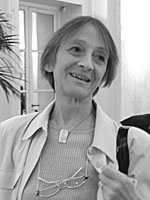News

Can we build a "national religion" ? Conference of Roberte Hamayon
Building a national religion has been, from the fall of the USSR, a major concern of two autonomous republics in Siberia, Yakutia and Buryatia, which had an active policy in this regard. The problem, complex, was new. Under the Empire, the Orthodox Church had Christianized peoples of Siberia. Then the Soviet regime had wanted to eradicate any form of institution and religious practice. Changes in lifestyle, migration and mixing of populations did the rest: Communism had become the only landmark.
But now, suddenly, return to the traditions and identity assertion prove to be possible. Both republics where Russians, the majority in government and in the population, want to take their distance from Moscow, have the impetus to declare their sovereignty. They choose to allow themselves autochthonous identity support. Yakutia opted first for a form of neo-traditionalism (giving institutional structures to shamanism), Buryatia, opted for a kind of millenarian utopia (by making Geser an epic hero, an echo of Roman Caesar, a cultural emblem, which soon coincides with Genghis Khan).
We will briefly recount these attempts to try to understand their failure beyond circumstantial reasons; what does it take to build a "national religion"?
Roberte Hamayon, anthropologist, is director emeritus at the Ecole Pratique des Hautes Etudes, Section of Religious Sciences. From the late 1960s to the 1980s, she conducted ethnographic and linguistic studies in Mongolia and Buryatia (South Siberia). She founded the centre and journal of Études mongoles et sibériennes (http://emscat.revues.org and http://www.base-juniper.org). Her major publications concern shamanism, rituals, the concept of game. They include:
- La chasse à l’âme, Nanterre, Société d’Ethnologie, 1990 ;
- Taïga, terre de chamans, Paris, Imprimerie Nationale, 1997,
- Chamanismes, ed. Paris, Presses Universitaires de France (Quadriga); Diogène, 2003,
- Representing Power in Inner Asia, ed. Bellingham, Western Washington University, 2010.

